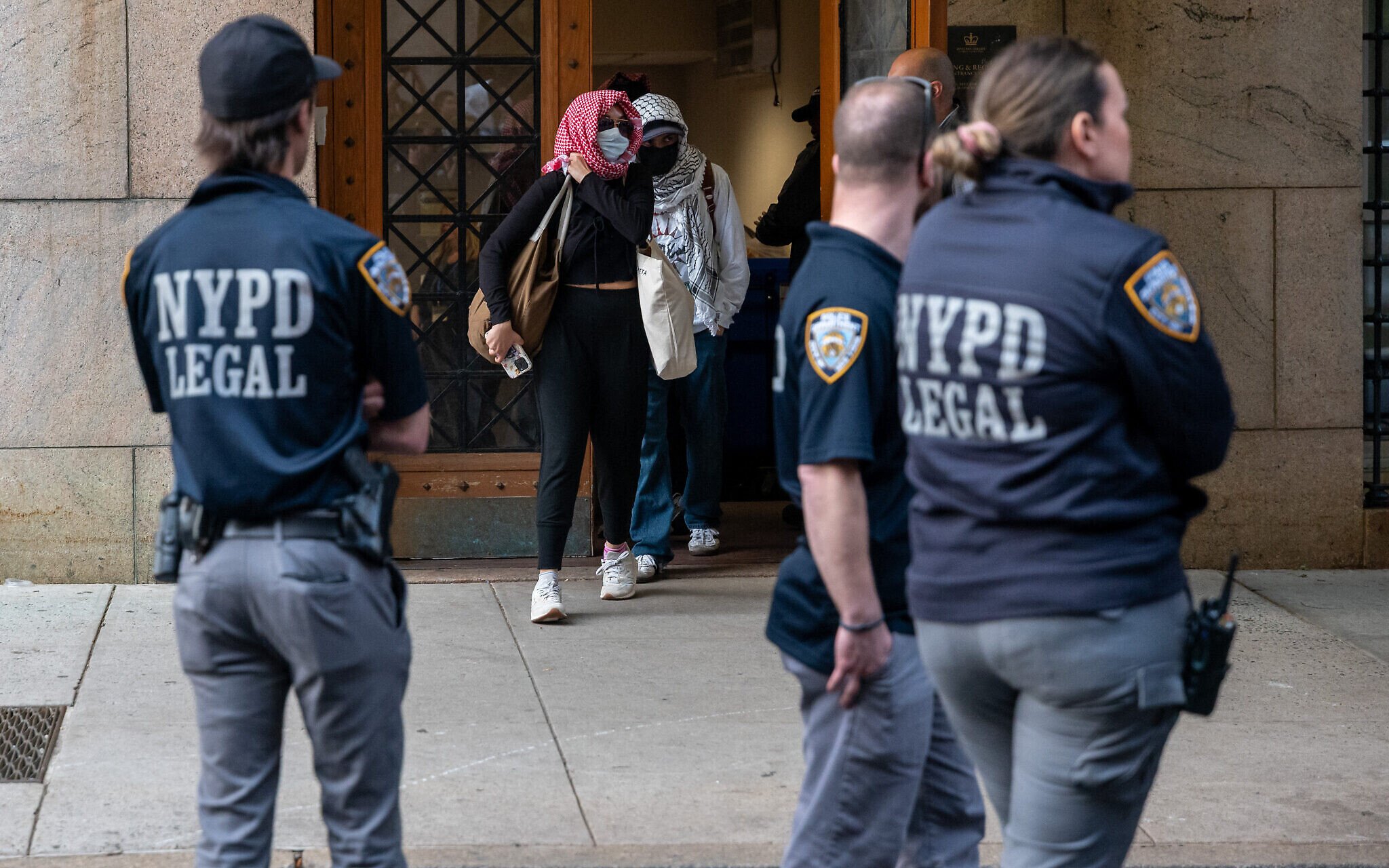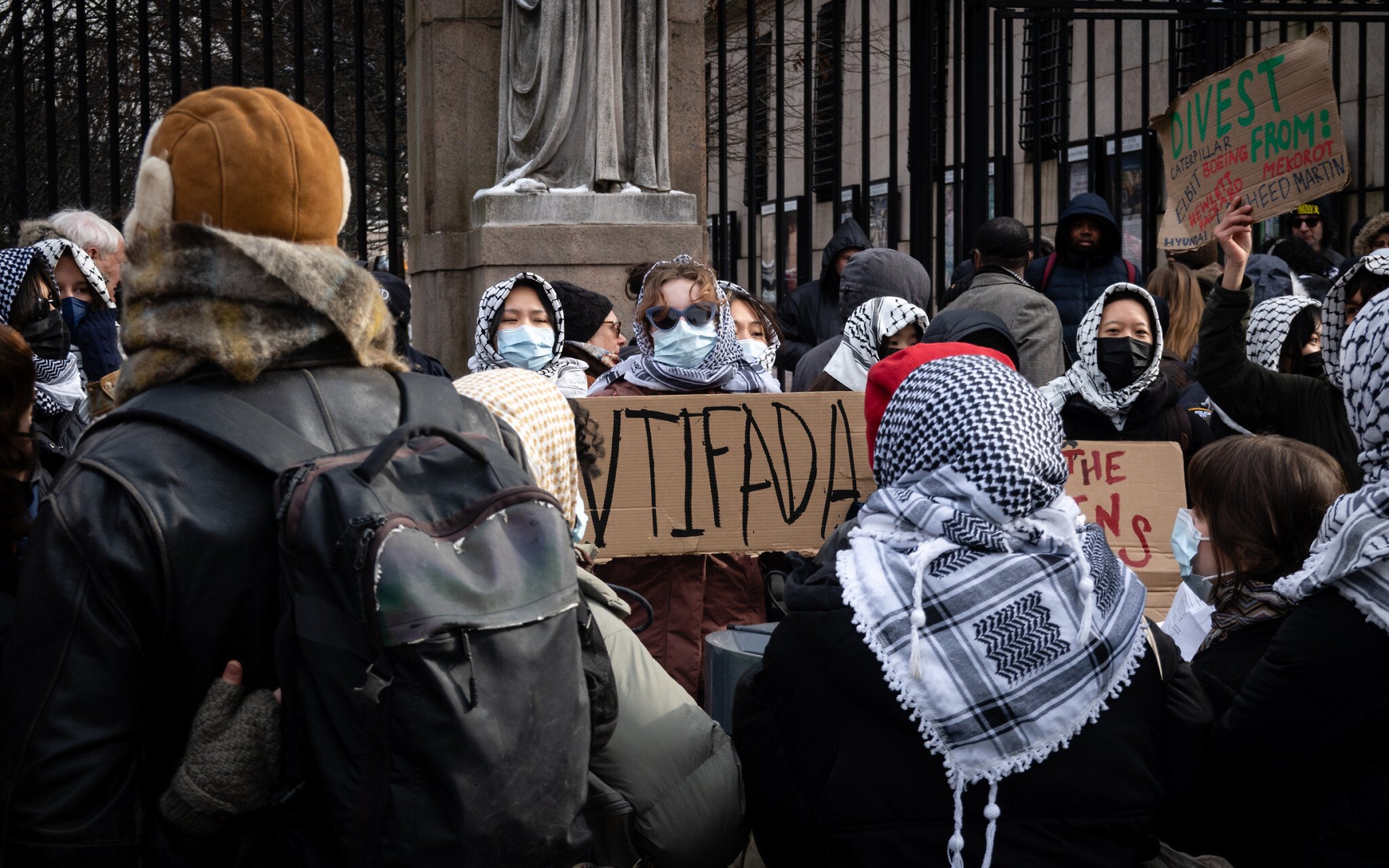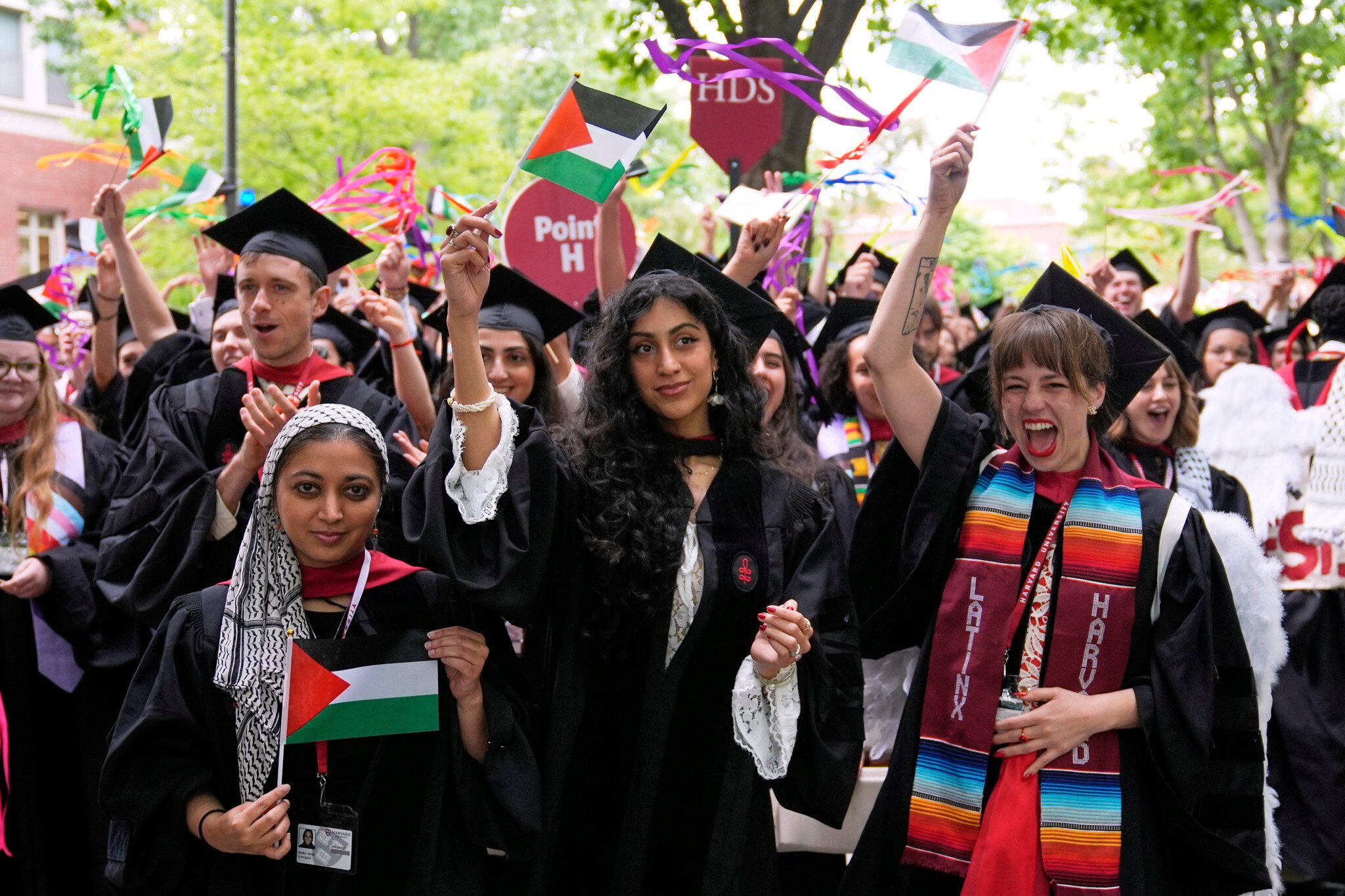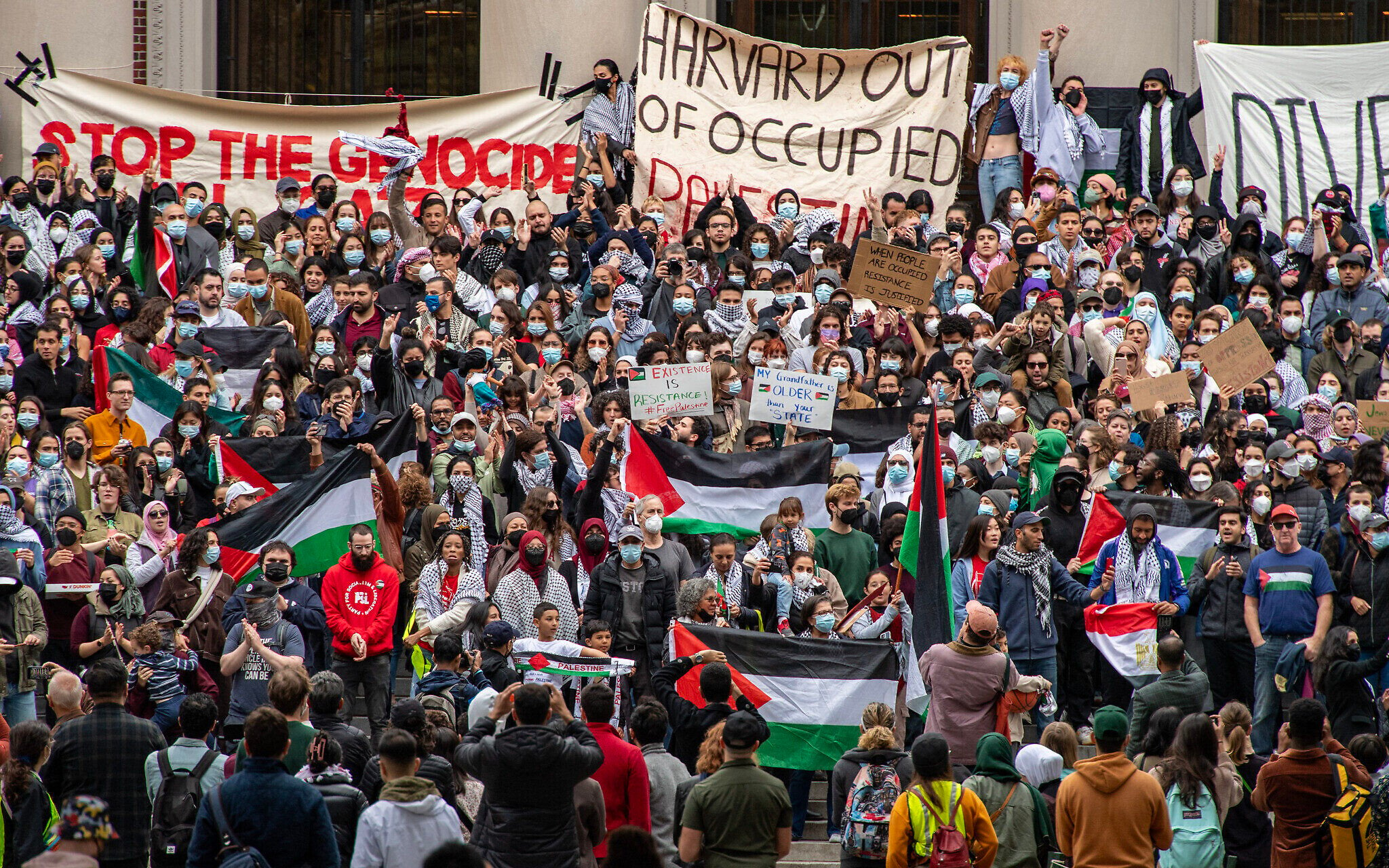



After the start of the Gaza war, Shimri Winters, an Israeli who consults for Israeli students applying to US universities, started hearing from applicants who were concerned about anti-Israel protests on American campuses.
When the Trump administration started its crackdown on visas for international students last month, particularly at Harvard University, Winters fielded another round of concerned calls.
“My only advice to our candidates who are saying, ‘Should I even apply to Harvard?’ Is ‘Yes, why not?'” Winters said. “Maybe your chances will actually be higher this year because other people won’t apply.”
Winters and other Israelis who consult with Israeli students applying to US universities said the protests, and later the Trump visa policies, have scrambled the application process for students, but that the recent visa restrictions have not caused a slowdown.
Winters’s company, Aringo MBA Admissions Consulting, focuses on helping students apply to international MBA programs. The company is based in Israel, but also assists some students from other countries. The number of Israeli applicants has been climbing since around the time the Netanyahu coalition announced its judicial overhaul plans at the start of 2023, Winters said.
Israelis seek to study abroad because studying in the US is a way to gain entry into the US market and its potentially higher earning potential.
Students, and the parents of some younger applicants, started asking about antisemitism on campus soon after the war started.
“It’s a question I haven’t received until two years ago, but I have been receiving more and more,” Winters said.
The campus protests impacted the students in how they presented themselves and where they wanted to go, but did not stop them from applying, several consultants said.
Also, while the protests unnerved some students, university admissions officers were accommodating, which encouraged some of the applicants, said Galit Adesman, the founder and head of the educational consulting company Eshkolot. Her company works with a range of students, from undergraduates to doctoral candidates.
“They were very supportive of Israelis. They gave them a waiver from the GMAT and TOEFL,” Adesman said, referring to the Graduate Admissions Test and the Test of English as a Foreign Language. “They were very responsive to the situation. Students pick up on that.”
Winters said some schools had offered waivers to Israelis, Palestinians and Ukrainians.
“They’re definitely coming towards Israelis with, I don’t want to say lowering the bar, but saying, ‘If you have an issue, tell us,'” Winters said. “I haven’t seen any school showing us that they’ll accept fewer Israelis. On the contrary, I’ve seen the numbers keep going up.”
He said his company has placed 2,000 students at top international MBA programs in the past 20 years.
Sahar Rotem, whose company Ustudents also advises Israeli applicants, said there had been a slowdown in applications at the start of the war because many young people were called into the reserves, but it picked back up later.
The students who are more concerned about campus antisemitism gravitate toward Republican states, especially Florida, where there has been less upheaval, Rotem said. His company caters to many student athletes, and focuses less on the most elite colleges.
Adesman said some students were not deterred by protests at hotbeds such as Columbia University, but wanted to attend those schools to assert an Israeli presence.
“They are ready for the challenge. They know it won’t be easy for them,” Adesman said. “They want to go, they want to fight back, they want to present everything in the best way possible.”
She has seen a shift, though, in students applying more to East Coast schools. She believes the West Coast campuses, such as Berkeley and Stanford, may appear more radical to her candidates.
“All the universities on the West Coast, besides UCLA, seem like it’s more difficult to get in. It seems like students are not willing to consider the West Coast like they used to,” she said.
The consultants have also fielded questions from students grappling with how to present their military service in their applications. The consultants advised the students to continue highlighting their service, but to focus on personal stories.
Adesman consulted a veteran of two elite IDF units who had taken part in a hostage rescue operation in Gaza. She advised him to relate a story in his application essay about his team caring for an autistic Palestinian child they found abandoned in a home in Gaza.
“Those are the stories that are very moving,” she said.
Rotem said military service was still seen as an attribute for Israeli candidates, but he had advised some of them to “take it down a notch.”
“You can say, ‘I was serving,’ but don’t get into the war too much because you don’t know who’s on the other side,” he said. “I remember, a few of our essays, I said, ‘Ok, let’s relax on the military thing.'”
The three consultants cater to different student groups, so their experiences with candidates vary, but all said that the Trump visa policies have not dissuaded Israelis from applying.
The Trump administration has sought to halt visa interviews for foreign students and ban foreign students from Harvard, sparking a court battle, among other measures targeting non-citizens.
On Wednesday, the Trump administration moved to bar nearly all foreign students from entering the US to attend Harvard, another move that was temporarily blocked by a judge. That order was scheduled to last six months and has a carve-out for some international students who would “benefit the national interest.” Winters pointed out that MBA candidates, the group he works with, usually pay a hefty tuition, cover their living expenses, and graduate to lucrative jobs, contributing to US taxes and the economy.
It remains unclear how the ban will be implemented, given the ongoing legal battle. The Trump administration has cited campus antisemitism as a leading reason for the crackdown.
There are 80 Israeli students and 80 Israeli scholars at Harvard, according to university data.
Adesman said the biggest issue is for students who have been accepted to schools, including Harvard, but have not yet acquired visas. Overall, the application rate hasn’t slowed. She placed five students at Harvard this year, and all received scholarships, she said.
“It’s the same numbers. Nobody is thinking about canceling or not applying to an American university because of the Trump rules,” she said.
Rotem, whose students tend to go to highly rated schools but not the Ivy Leagues, said the Trump administration’s visa policies have had “no impact at all” on his candidates. He has seen a slowdown in the past six months, starting before the visa restrictions, for reasons that were unclear, he said.
Winters said most students who have been accepted for the 2025 school year have visas already. For those who don’t, the schools have been offering “amazing support,” including with lawyers and consultants.
“They’re actively reaching out to admitted students and saying, ‘We’re in this together, and we’re going to help you get the visa,” he said.
Winters said some of the visa application process may become more stringent, for example, applicants may be required in the future to provide more references or proof that they can pay tuition.
“We’re hoping this is a short pause, and maybe they’ll change a bit the structure or do more rigorous checks, but it won’t influence Israelis who are going to top 10 universities,” he said. He added that, while there may be fewer applicants to Harvard, increasing chances of acceptance, more students might apply to competitors like MIT, making entry there more difficult.
The Israeli students are “frustrated” and “worried” by the restrictions that are carried out in the name of fighting antisemitism, but support the end goal, Adesman said.
“They do understand that this is for the future of Israel and the Jewish people,” she said.





